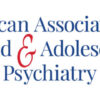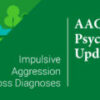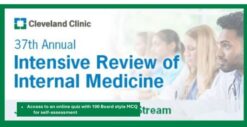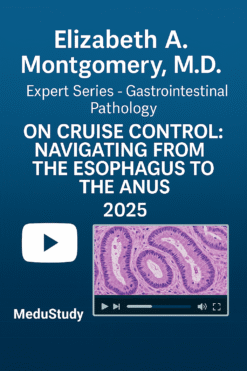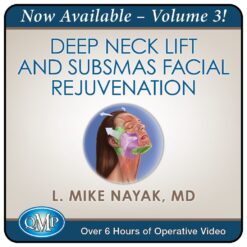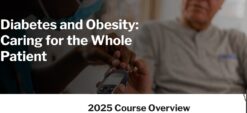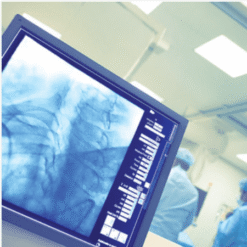American Academy of Child and Adolescent Psychiatry AACAP 70th Annual Meeting 2023
$30
Include: 213 videos 213 audios, size: 260 GB
Target Audience: child and adolescent psychiatrists, psychiatry residents
Include: 213 videos 213 audios, size: 260 GB
The American Academy of Child and Adolescent Psychiatry (AACAP) 70th Annual Meeting 2023 is a premier event dedicated to advancing the mental health of children and adolescents. This comprehensive program brings together leading experts, researchers, and clinicians to share cutting-edge knowledge, innovative treatments, and the latest research in psychiatry. Through keynote sessions, interactive workshops, and symposia, attendees will gain practical skills and insights to improve patient care and outcomes.
What You Will Learn
-
The latest research and clinical advances in child and adolescent psychiatry
-
Evidence-based diagnostic and treatment approaches for psychiatric disorders in youth
-
Strategies for integrating new therapies and interventions into practice
-
Updates on policy, advocacy, and systems of care impacting mental health services
-
Collaborative care models and multidisciplinary treatment approaches
Event Details
-
Event: AACAP 70th Annual Meeting 2023
-
Format: In-person conference with select virtual sessions
-
Sessions: Keynotes, symposia, clinical case discussions, workshops, and poster presentations
-
Focus Areas: ADHD, anxiety disorders, depression, autism spectrum disorders, trauma, psychopharmacology, and more
Who Should Attend
Child and adolescent psychiatrists, general psychiatrists, psychologists, pediatricians, psychiatric nurses, social workers, mental health counselors, researchers, and trainees.
Why Attend
This event is a unique opportunity to connect with leading minds in the field, expand your clinical expertise, and gain actionable strategies for delivering high-quality mental health care to young populations. By attending, you will enhance your professional skills, stay at the forefront of psychiatric innovation, and contribute to advancing the mental well-being of children and adolescents worldwide.
Topics:
1. ADHD & Neurodevelopmental Disorders
-
ADHD diagnosis, disparities, and racial/ethnic differences (Clinical Perspectives 9, 35, Symposium 11, 13, 22, 34, 39, 41)
-
New treatments, neurostimulation, and digital therapeutics (Clinical Perspectives 12, 36, 51)
-
Psychopharmacology in ASD and comorbidities (Clinical Perspectives 33, 46, Institute 3.1, 3.2, 3.3, 3.4, 3.6, 5.1, 9.6, Symposium 53)
-
Functional somatic symptoms in neurodevelopmental disorders (Clinical Perspectives 29, 53)
-
Avoidant/Restrictive Food Intake Disorder (Clinical Perspectives 27, 54)
-
Tourette’s disorder updates (Clinical Perspectives 55)
2. Autism Spectrum Disorder (ASD)
-
Post-diagnosis family guidance (Clinical Perspectives 14)
-
ASD comorbidity management (Clinical Perspectives 33)
-
Repetitive behaviors in ASD (Clinical Perspectives 46)
-
Comprehensive treatment planning & challenging behaviors (Clinical Perspectives 62)
-
ASD & gender identity challenges (Clinical Perspectives 59)
-
Psychiatric/medical updates in ASD (Institute 5.2)
-
Traits to catatonia in ASD (Symposium 53)
3. Gender Diversity & LGBTQMental Health
-
Community mental health for LGBTQ youth (Clinical Perspectives 11)
-
Gender affirmation, detransition/retransition (Clinical Perspectives 18)
-
Gender-diverse youth in rural areas (Clinical Perspectives 66)
-
BIPOC LGBTQ media & intersectionality (Clinical Perspectives 70)
-
Gender dysphoria diagnostics & co-occurring disorders (Institute 1.4)
-
Gender diversity & suicidality (Institute 1.5)
-
Transgender youth long-term outcomes after hormones (Institute 1.6)
-
Age differences in transgender care (Institute 1.7)
-
Psychotherapeutic strategies for families (Institute 1.9)
-
Barriers & benefits to gender-affirmative care (Institute 5.3)
-
Brain & behavior in gender-diverse youth (Symposium 19)
4. Child & Adolescent Suicide Prevention
-
Statewide initiatives for suicide prevention (Clinical Perspectives 8)
-
Suicidal youth post-crisis care (Clinical Perspectives 21)
-
Global perspectives on suicidal behaviors (Clinical Perspectives 50)
-
Suicide in minoritized youth (Institute 5.6)
-
Suicide contagion in media (Symposium 46)
-
Suicide screening & predictive validity (Symposium 21)
5. Trauma, Violence, & Crisis Response
-
Racism & intergenerational trauma (Clinical Perspectives 3)
-
Mass violence & terrorism impacts (Clinical Perspectives 26)
-
Children traumatized by inter/intra-national violence (Clinical Perspectives 60)
-
Complex trauma diagnosis in youth (Clinical Perspectives 2)
-
Trauma, psychosis, and systems-involved youth (Symposium 18)
-
Integrating trauma-focused CBT with racial socialization (Symposium 28)
-
Violence & trauma prevention/intervention (Symposium 29)
6. Substance Use & Addiction
-
Drug-using adolescents lacking motivation to quit (Clinical Perspectives 15)
-
Cannabis & psychosis (Clinical Perspectives 36)
-
Behavioral addictions & substance use (Clinical Perspectives 65)
-
Substance use prevention in youth (Clinical Perspectives 86)
-
Opioid epidemic & fentanyl (Clinical Perspectives 72)
-
Nicotine use disorder updates (Institute 5.1)
-
Neural mechanisms in substance use disorders (Symposium 15)
7. Education, Schools, & Academic Transition
-
Transitioning back to school & absenteeism (Clinical Perspectives 16)
-
Equity in schools & communities (Clinical Perspectives 67)
-
School-based collaborative psychiatry (Clinical Perspectives 78)
-
School support & transition to college (Clinical Perspectives 83)
-
Universal prevention in schools (Clinical Perspectives 85)
-
Threat assessment & management in schools (Institute 4.1–4.5, 4.7)
8. Psychopharmacology & Treatment Strategies
-
Managing psychotropic side effects (Clinical Perspectives 37)
-
Psychopharmacologic standards of care dialogue (Clinical Perspectives 32)
-
Early psychosis prescribing practices (Clinical Perspectives 75)
-
Novel pharmacological treatments (Clinical Perspectives 51)
-
Depression pharmacology updates (Institute 3.4, 3.5)
-
Impulsive aggression management (Institute 3.6)
9. Family, Parenting, & Caregiver Involvement
-
Father involvement in diverse cultures (Clinical Perspectives 10)
-
Maternal figures in clinical practice (Clinical Perspectives 5)
-
Extended family interventions (Clinical Perspectives 79, 82)
-
Increasing caregiver involvement (Clinical Perspectives 52)
-
Family interventions across acute care systems (Clinical Perspectives 79)
10. Specific Psychiatric Disorders
-
Pediatric psychiatric emergencies (Clinical Perspectives 22)
-
Functional neurological disorders (Clinical Perspectives 43)
-
Pediatric aggression strategies (Clinical Perspectives 84)
-
Pediatric catatonia (Symposium 27)
-
PANS updates (Symposium 44)
-
Somatic symptom disorders (Clinical Perspectives 81)
11. Special Populations & Cultural Psychiatry
-
Cross-cultural interventions & resilience (Clinical Perspectives 1)
-
Intergenerational gaps in adolescent subcultures (Clinical Perspectives 31)
-
Cultural humility & inclusive practices (Institute 5.5, 5.7)
-
Asian mental health updates (Institute 5.2)
-
International symposiums on education & training (Symposium 10)
12. Technology & Innovation
-
Digital therapeutics in ADHD (Symposium 22)
-
Video games as therapy (Clinical Perspectives 41)
-
Social media & psychopathology (Institute 5.4)
-
Technology in assessment & stigma reduction (Symposium 32)
-
Big data & prediction in youth mental health (Institute 6.1–6.6)
13. Sleep, Circadian & Biological Factors
-
Sleep problems in youth (Clinical Perspectives 47, Symposium 51)
-
Circadian function assessment (Symposium 31)
-
Sleep in neurotypical & neurodiverse youth (Symposium 56)
14. Policy, Systems & Workforce Development
-
Alternative to inpatient/residential treatment (Clinical Perspectives 20)
-
Healthcare systems in prevention (Clinical Perspectives 85)
-
Pediatric collaborative care workforce (Clinical Perspectives 56)
-
Systems-level crisis response (Institute 2.x series)
-
Post-Roe policy & family mental health (Symposium 50)
Related products
Uncategorized
Uncategorized


